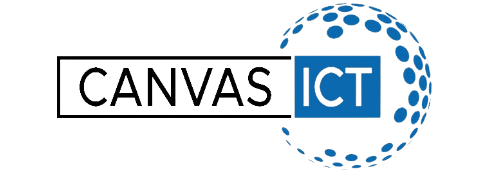
First impressions are everything, especially when it comes to job interviews. What you wear to an interview can say a lot about your professionalism, confidence, and attitude. In this blog post, we’ll provide some tips and advice on what to wear for the interview, so you can make a great first impression and increase your chances of landing the job.
We’ll cover topics such as researching the company culture, choosing classic styles, paying attention to details like grooming and accessories, considering the role, and feeling comfortable and confident in your outfit. We’ll also provide some examples and guidelines for different types of roles and industries.
If you’re preparing for an upcoming interview, make sure you read this blog post to get some valuable insights and tips on dressing for success. Remember, your outfit can help you to project a positive image and show the hiring manager that you are the right fit for the job.
1. Research the Company’s Culture
Before deciding what to wear, it’s important to research the company culture. This will help you to understand the dress code and what is appropriate to wear for the interview. Look for photos of employees on the company website or social media profiles to get a sense of what people typically wear to work. If in doubt, it’s always better to dress more formally than too casually.
2. Stick to Classic Styles
When it comes to choosing an outfit for the interview, it’s best to stick to classic styles. This means choosing neutral colors like black, navy, or gray, and avoiding bright or flashy colors. A well-fitted suit or dress pants and a blazer with a conservative blouse or button-down shirt is always a safe choice. Make sure your clothes are clean, pressed, and in good condition.
3. Pay Attention to the Details
It’s not just the clothes you wear that matter, but also the details. Pay attention to your grooming, including your hair, nails, and makeup. Keep jewelry to a minimum and avoid anything distracting or noisy. Shoes should be clean and polished and should match your outfit. A good rule of thumb is to dress as if you are meeting your future boss, not your friends.
4. Consider the Role
The type of role you are interviewing for may also influence what you wear. For example, if you are interviewing for a job in a creative field like marketing or design, you may be able to get away with a more trendy or colorful outfit. However, if you are interviewing for a more formal role like a lawyer or banker, it’s best to stick to classic styles.
5. Be Comfortable and Confident
Finally, it’s important to feel comfortable and confident in what you wear. If you’re not used to wearing a suit, practice wearing it a few times before the interview to make sure you feel comfortable and can move around easily. If you feel confident in what you’re wearing, you’ll be more relaxed and better able to focus on the interview.
To sum up, selecting the right outfit is a vital aspect of interview preparation. To make a positive first impression and enhance your chances of securing the job, you should research the company culture, opt for classic styles, be mindful of details, take the role into account, and ensure you feel comfortable and confident. Always bear in mind that your attire can convey professionalism, dependability, and preparedness to the hiring manager, thereby helping you to make a favorable impression.
Summary of what to wear for the interview
- Suit: A well-fitted suit in a neutral color like black, navy, or gray is always a safe and professional choice.
- Dress pants and blazer: If you don’t want to wear a full suit, dress pants and a blazer can also work well. Stick to neutral colors and classic styles.
- Button-down shirt or blouse: A clean and ironed button-down shirt or blouse in a solid color is a great choice. Avoid bright colors or bold patterns.
- Dress shoes: A pair of polished dress shoes that match your outfit is the best choice. Avoid open-toed shoes, sandals, or sneakers.
- Minimal accessories: Keep jewelry and accessories to a minimum, and avoid anything distracting or noisy.
- Grooming: Pay attention to your grooming, including hair, nails, and makeup. Keep it clean and professional.
Remember, it’s always better to dress more conservatively than too casually. A professional and polished outfit can help you make a great first impression and show the hiring manager that you are the right fit for the job.
Canvas ICT
Hope you enjoyed this article, be sure to check out our other articles on interview tips (intw), career advice, and industry insights. Our website is packed with useful resources designed to help you succeed in your professional life. Whether you’re seeking guidance on how to ace a job interview, or looking for inspiration to take your career to the next level, we have you covered. Don’t miss out on the opportunity to access our valuable resources, and current vacancies and unlock your potential. Check out our other articles today! Also check out this interesting article on preparing for job interview.



